Commerce Stream After 10th? Here’s All You Need To Know
Choosing the right stream after 10th grade is a pivotal decision that sets the stage for your future career. It’s natural to feel a bit overwhelmed by the options and the importance of making the “right” choice. As a 10th-grade student, you might be wondering which path to take, and as a parent, you want to ensure your child is on the right track. Let’s have a chat about why the Commerce stream might be a great fit for you. Check out Deeksha’s top PU college for Commerce stream.
The Commerce stream offers a wealth of opportunities and is incredibly versatile. If you have an interest in business, finance, economics, or even law, Commerce provides a strong foundation to build upon. It’s not just about studying numbers and accounts; it’s about understanding the dynamics of how businesses operate, the economy functions, and financial systems work.
Commerce can lead you to exciting careers in various fields such as accounting, business management, finance, economics, and even entrepreneurship. It’s a stream that equips you with practical knowledge and skills that are highly valued in the job market. Moreover, it provides flexibility. Many courses and career options in Commerce allow you to pivot and specialize as your interests develop.
Remember, this decision is not just about the next two years but about laying a foundation for your future. By choosing the Commerce stream, you’re opening doors to a multitude of career paths that can evolve with your growing interests and aspirations. Take your time to explore your options, and choose a path that aligns with your strengths and passions. We’re here to help guide you through this important decision!
Improving Exam Prep for PU Commerce Students
Why Choose the Commerce Stream?
Advantages of Opting for the Commerce Stream
Opting for the Commerce stream provides numerous advantages. It offers a practical and real-world approach to education, focusing on subjects like Accountancy, Business Studies, and Economics. These subjects equip you with valuable skills in financial literacy, business management, and economic understanding. The Commerce stream also provides a strong foundation for professional courses like Chartered Accountancy (CA), Company Secretary (CS), and other finance-related certifications, which are highly respected and offer lucrative career opportunities.
Scope and Flexibility in Career Choices
The Commerce stream offers immense scope and flexibility in career choices. Whether you aspire to work in finance, management, entrepreneurship, or law, Commerce provides a robust starting point. You can pursue undergraduate courses such as B.Com, BBA, or integrated law degrees, followed by specialized post-graduate programs like MBA or M.Com. The flexibility of the Commerce stream allows you to switch to different domains like marketing, human resources, and even information technology, depending on your evolving interests.
Comparison with Other Streams (Science and Arts)
When compared to the Science and Arts streams, Commerce stands out for its balance of theoretical knowledge and practical application. Science is often seen as a gateway to technical and medical fields, requiring a strong aptitude for mathematics and natural sciences. While Science offers opportunities in engineering, medicine, and research, it demands rigorous study and preparation for competitive exams.
Arts, on the other hand, emphasizes creativity and humanities, leading to careers in literature, history, psychology, and media. While Arts offers rich cultural and social insights, it may not provide as direct a pathway to high-earning professional roles as Commerce.
In summary, the Commerce stream is ideal for students who are inclined towards business, finance, and economics. It offers a diverse range of career opportunities and the flexibility to adapt to various professional fields, making it a smart choice for a dynamic and rewarding career.
Core Subjects in Commerce Stream
Accountancy
Accountancy is the backbone of commerce education, focusing on the systematic recording, reporting, and analysis of financial transactions. It is essential for understanding how businesses operate financially and is crucial for careers in accounting, auditing, and finance.
Key Concepts and Topics Covered:
- Financial Accounting: Recording financial transactions, preparing financial statements.
- Cost Accounting: Analyzing cost data for budgeting and decision-making.
- Management Accounting: Providing financial data to managers for strategic planning.
- Taxation: Understanding direct and indirect taxes, and their implications on businesses.
Importance in Various Fields:
- Accounting: Essential for maintaining accurate financial records and compliance with laws.
- Auditing: Ensuring accuracy and fairness in financial statements.
- Finance: Managing financial resources, investment strategies, and economic forecasting.
Table of Key Topics Covered:
| Topic | Description |
| Financial Statements | Balance Sheet, Profit & Loss Account, Cash Flow Statement |
| Ledger and Journal | Recording transactions in primary books |
| Cost Accounting | Cost analysis, budgeting, and variance analysis |
| Taxation | Income tax, GST, corporate tax |
Business Studies
Business Studies provides a comprehensive understanding of business operations, management principles, and the economic environment in which businesses operate. It prepares students for managerial roles and entrepreneurial ventures.
Key Concepts and Topics Covered:
- Principles of Management: Planning, organizing, leading, and controlling.
- Business Environment: Understanding economic, legal, and social environments.
- Marketing Management: Strategies for product promotion, distribution, and sales.
- Human Resource Management: Recruitment, training, and employee relations.
Applications in Different Industries:
- Management: Essential for roles in corporate management and strategy.
- Entrepreneurship: Provides the foundation for starting and managing new ventures.
- Marketing: Crucial for roles in advertising, sales, and brand management.
Table of Key Topics Covered:
| Topic | Description |
| Principles of Management | Functions and roles of management |
| Marketing Management | Market research, product development, promotion |
| Business Environment | Economic policies, legal regulations, social trends |
| Human Resource Management | Employee recruitment, training, and development |
Economics
Economics explores how societies use resources to produce goods and services and how these goods and services are distributed among the population. It is vital for careers in economic research, policy analysis, and financial consulting.
Key Concepts and Topics Covered:
- Microeconomics: Study of individual economic units like households and firms.
- Macroeconomics: Study of the economy as a whole, including inflation, unemployment, and economic growth.
- Economic Policies: Understanding fiscal and monetary policies.
- International Economics: Trade policies, exchange rates, and global economic relations.
Career Paths:
- Economist: Conducting research and analyzing economic data.
- Policy Analyst: Advising on economic policies and their implications.
- Financial Consultant: Providing strategic advice on financial planning and investments.
Table of Key Topics Covered:
| Topic | Description |
| Microeconomics | Demand and supply, market structures |
| Macroeconomics | GDP, inflation, fiscal and monetary policies |
| Economic Policies | Government interventions, policy impacts |
| International Trade | Trade theories, balance of payments, exchange rates |
Mathematics (Optional)
Mathematics in Commerce is often optional but highly beneficial, especially for careers in accounting, finance, and actuarial science. It enhances analytical and problem-solving skills.
Key Concepts and Topics Covered:
- Algebra: Equations, inequalities, and polynomials.
- Calculus: Limits, derivatives, and integrals.
- Statistics: Data analysis, probability, and statistical measures.
- Business Mathematics: Interest calculations, annuities, and investment analysis.
Role in Careers:
- CA (Chartered Accountancy): Essential for complex financial calculations and audits.
- CS (Company Secretary): Useful for understanding financial reports and compliance.
- Actuarial Science: Critical for risk assessment and management.
Table of Key Topics Covered:
| Topic | Description |
| Algebra | Solving equations, working with inequalities |
| Calculus | Differentiation and integration techniques |
| Statistics | Descriptive and inferential statistics |
| Business Mathematics | Financial calculations, interest, annuities |
Optional Subjects
Optional subjects allow students to tailor their education according to their interests and career goals. Common options include Informatics Practices, Physical Education, and languages.
Brief Overview and Their Significance:
- Informatics Practices: Focuses on computer science, programming, and data management. It complements Commerce subjects by providing IT skills essential for modern business environments.
- Physical Education: Promotes physical fitness and well-being, important for overall development.
- Languages: Enhances communication skills, crucial for business negotiations and international trade.
How They Complement Core Subjects:
- Informatics Practices: Supports careers in IT, business analytics, and e-commerce by providing technical skills.
- Physical Education: Helps maintain a balanced lifestyle, which is beneficial for stress management in demanding careers.
- Languages: Useful for international business, enhancing cultural understanding and communication.
This detailed overview of core subjects in the Commerce stream provides a comprehensive understanding of the key concepts, their applications, and potential career paths. By exploring these subjects, students can make informed decisions about their future academic and career pursuits.
Course Structure and Study Plan
Typical Course Structure for Commerce Stream Students
The Commerce stream is structured to provide a balanced mix of theoretical knowledge and practical skills. Typically, students are required to study core subjects like Accountancy, Business Studies, Economics, and English, with the option to choose additional subjects such as Mathematics, Informatics Practices, or Physical Education. This structure aims to build a strong foundation in commerce and business-related subjects, preparing students for higher education and professional courses.
Year-Wise Breakdown of Subjects and Syllabus
- Class 11: Focuses on introductory concepts and fundamental principles. Students study basics in Accountancy (financial statements, ledgers), Business Studies (principles of management, business environment), and Economics (microeconomics, basic economic concepts). Optional subjects and English also form part of the curriculum.
- Class 12: The syllabus becomes more advanced and specialized. In Accountancy, students learn about company accounts, cost accounting, and taxation. Business Studies covers deeper topics like marketing management, financial management, and human resources. Economics includes macroeconomic concepts, economic policies, and international trade. Optional subjects continue to build on the foundations laid in Class 11.
Importance of Practical Applications and Internships
Practical applications and internships are crucial in the Commerce stream. Practical exercises in Accountancy, such as maintaining ledgers and preparing financial statements, help students apply theoretical knowledge to real-world scenarios. Business Studies projects and case studies provide insights into the functioning of businesses and management practices. Internships offer hands-on experience, exposing students to the corporate world and enhancing their employability. They help bridge the gap between academic learning and practical application, making students job-ready and giving them a competitive edge in their chosen careers.
This course structure and study plan ensure that Commerce students are well-prepared for their academic and professional futures, with a strong emphasis on both theoretical knowledge and practical skills.
Different Courses and Combinations
Core Commerce Courses (Accountancy, Business Studies, Economics)
The core Commerce stream typically includes Accountancy, Business Studies, and Economics. This combination provides a comprehensive understanding of financial systems, business operations, and economic principles.
Suitable for Careers in Finance, Management, and Business:
- Finance: Careers such as Chartered Accountant (CA), Certified Public Accountant (CPA), and Financial Analyst benefit from a strong foundation in Accountancy and Economics. These roles involve managing financial records, analyzing financial data, and providing strategic financial advice.
- Management: Roles like Business Manager, Marketing Manager, and Human Resources Manager rely heavily on knowledge from Business Studies. Understanding management principles, organizational behavior, and business strategy is essential.
- Business: Entrepreneurs and business consultants need a robust understanding of all three core subjects. They must grasp financial accounting, business environment, and economic trends to make informed decisions and guide businesses toward success.
Commerce with Mathematics
Adding Mathematics to the core Commerce subjects significantly enhances analytical and quantitative skills, making it ideal for certain specialized careers.
Ideal for Careers in Accounting, Actuarial Science, and Finance:
- Accounting: Mathematics is crucial for advanced accounting roles. Chartered Accountants (CA), Cost Accountants, and Auditors often require a deep understanding of mathematical concepts to handle complex financial calculations, tax computations, and financial modeling.
- Actuarial Science: Actuaries assess financial risks using mathematics, statistics, and financial theory. This combination prepares students for actuarial exams and roles in insurance, pensions, and investment industries.
- Finance: Careers in investment banking, financial analysis, and portfolio management benefit greatly from strong mathematical skills. Financial models, quantitative analysis, and data interpretation are key components of these roles.
Commerce with Informatics Practices/Computer Science
Integrating Informatics Practices or Computer Science with Commerce subjects equips students with technical skills essential for modern business environments.
Suitable for IT and Business Analytics Careers:
- IT in Commerce: This combination prepares students for roles like Business Analyst, Systems Analyst, and IT Manager within business contexts. Understanding both business processes and IT systems enables these professionals to bridge the gap between technical teams and business stakeholders.
- Business Analytics: Professionals in this field analyze data to provide actionable business insights. Roles like Data Analyst, Business Intelligence Analyst, and Data Scientist require knowledge of both Commerce subjects and IT skills, including data management, programming, and statistical analysis.
- E-commerce: Careers in e-commerce management, digital marketing, and online business strategy benefit from this combination. Knowledge of business operations, combined with IT skills, enables professionals to develop and manage online business platforms effectively.
This detailed overview of different courses and combinations within the Commerce stream highlights the flexibility and wide range of career opportunities available. By choosing the right combination of subjects, students can tailor their education to match their career aspirations, whether in finance, management, business, IT, or analytics.
Career Opportunities After Commerce Stream
Finance and Accounting
The finance and accounting sector is one of the most sought-after career paths for Commerce students, offering lucrative and stable career options.
Key Careers:
- CA (Chartered Accountancy): CAs handle financial audits, tax assessments, and advisory services for businesses.
- CS (Company Secretary): CS professionals ensure company compliance with legal and regulatory requirements.
- CFA (Chartered Financial Analyst): CFAs specialize in investment management and financial analysis.
Overview of Entrance Exams:
- CA Foundation: The entry-level exam for Chartered Accountancy in India, conducted by the Institute of Chartered Accountants of India (ICAI).
- CS Foundation: The entry-level exam for Company Secretary, conducted by the Institute of Company Secretaries of India (ICSI).
- CFA Exam: A globally recognized exam for investment professionals, conducted by the CFA Institute.
Career Prospects and Specializations:
- CA Specializations: Audit, Taxation, Corporate Finance, Risk Management.
- CS Specializations: Corporate Governance, Legal Advisory, Compliance Management.
- CFA Specializations: Equity Research, Portfolio Management, Investment Banking.
Table: Key Entrance Exams and Career Paths
| Career | Entrance Exam | Specializations |
| Chartered Accountant | CA Foundation | Audit, Taxation, Corporate Finance, Risk Management |
| Company Secretary | CS Foundation | Corporate Governance, Legal Advisory, Compliance Management |
| Chartered Financial Analyst | CFA Exam | Equity Research, Portfolio Management, Investment Banking |
Management and Business
Management and business roles are ideal for those interested in leadership, strategic planning, and organizational operations.
Key Careers:
- BBA (Bachelor of Business Administration): An undergraduate degree focusing on business management principles.
- MBA (Master of Business Administration): A postgraduate degree that offers specialization in various business domains.
Overview of Entrance Exams:
- CAT (Common Admission Test): Conducted by the Indian Institutes of Management (IIMs) for MBA admissions.
- MAT (Management Aptitude Test): Conducted by the All India Management Association (AIMA) for MBA and allied programs.
- GMAT (Graduate Management Admission Test): A globally recognized exam for business school admissions.
Future Scope and Industry Demand:
- BBA: Provides a foundation for managerial roles and entrepreneurial ventures.
- MBA Specializations: Marketing, Finance, Human Resources, Operations, Information Systems.
Table: Key Entrance Exams and Career Paths
| Degree | Entrance Exam | Specializations |
| BBA | College-specific exams | General Management, Marketing, Finance |
| MBA | CAT, MAT, GMAT | Marketing, Finance, HR, Operations, IT |
Economics and Policy
Economics and policy roles are suited for those interested in understanding economic theories and their applications in policy-making.
Key Careers:
- B.A./B.Sc. in Economics: Undergraduate degrees focusing on economic theories and quantitative methods.
- M.A. in Economics: A postgraduate degree offering advanced study in economics.
Opportunities in Research, Policy Analysis, and Academia:
- Research Economist: Conducts economic research and analysis.
- Policy Analyst: Evaluates and develops policies based on economic theories.
- Academic Roles: Teaching and research positions in universities.
Scholarships and Entrance Exams for Higher Education:
- National Eligibility Test (NET): For research and teaching positions in India.
- GATE (Graduate Aptitude Test in Engineering): For M.A./M.Sc. admissions in economics-related fields.
- Rhodes Scholarship, Fulbright Scholarship: International scholarships for higher education.
Table: Key Entrance Exams and Career Paths
| Degree | Entrance Exam | Career Paths |
| B.A./B.Sc. in Economics | College-specific exams | Research Economist, Policy Analyst, Academic Roles |
| M.A. in Economics | NET, GATE | Advanced Research, Policy Development, Academia |
Banking and Financial Services
The banking and financial services sector offers a variety of career opportunities for Commerce graduates.
Key Careers:
- Investment Banker: Advises on financial transactions and capital raising.
- Financial Planner: Provides financial advice and planning services.
- Insurance Underwriter: Evaluates and assesses insurance risks.
Relevant Courses:
- B.Com: Bachelor of Commerce with a focus on banking and finance.
- M.Com: Master of Commerce with specializations in banking and financial services.
Table: Key Courses and Career Paths
| Degree | Specialization | Career Paths |
| B.Com | Banking and Finance | Investment Banker, Financial Planner, Insurance Underwriter |
| M.Com | Banking and Financial Services | Advanced Financial Analysis, Risk Management, Financial Consulting |
Information Technology and E-commerce
The integration of IT and Commerce opens up roles in business analytics and e-commerce management.
Key Careers:
- Business Analyst: Analyzes business processes and data to improve efficiency.
- E-commerce Specialist: Manages online business platforms and strategies.
Relevant Courses:
- B.Com with Computer Applications: Combines commerce and IT skills.
- BBA in E-commerce: Focuses on e-commerce technologies and strategies.
Certification Courses and Skill Development:
- Data Analytics Certifications: Offered by platforms like Coursera, edX.
- E-commerce Management Courses: Provided by various online education platforms.
Table: Key Courses and Career Paths
| Degree | Specialization | Career Paths |
| B.Com | Computer Applications | Business Analyst, IT Manager, Data Analyst |
| BBA | E-commerce | E-commerce Specialist, Digital Marketer, Business Strategist |
Law and Corporate Governance
Combining commerce with law offers careers in corporate law, compliance, and legal consulting.
Key Careers:
- Corporate Lawyer: Provides legal advice to businesses.
- Legal Consultant: Advice on legal matters and compliance issues.
- Compliance Officer: Ensures that companies adhere to laws and regulations.
Relevant Courses:
- B.Com LL.B.: An integrated degree combining commerce and law.
- BBA LL.B.: An integrated degree combining business administration and law.
Table: Key Courses and Career Paths
| Degree | Specialization | Career Paths |
| B.Com LL.B. | Corporate Law | Corporate Lawyer, Legal Consultant, Compliance Officer |
| BBA LL.B. | Business Law | Business Lawyer, Legal Advisor, Corporate Governance Specialist |
This detailed overview of career opportunities after the Commerce stream provides comprehensive insights into various fields, entrance exams, relevant courses, and career paths. By understanding these options, students can make informed decisions and pursue careers that align with their interests and strengths.
Comparison of Different Career Paths
We have drafted a detailed comparison table that provides a comprehensive overview of various career paths available after pursuing the Commerce stream. It highlights key factors such as the duration of study, investment in terms of time and money, job stability, salary expectations, scope of job roles, demand in the industry, required skills, and future growth trends. This comparison helps students and parents understand the distinct features of each career path, enabling them to make well-informed decisions based on their interests and career aspirations.
| Criteria | Finance and Accounting | Management and Business | Economics and Policy | Banking and Financial Services | IT and E-commerce | Law and Corporate Governance |
| Duration of Study | 3-5 years | 3-5 years | 3-5 years | 3-5 years | 3-4 years | 5 years |
| Investment (Time and Money) | High (professional courses like CA, CFA can be costly and time-intensive) | Moderate to High (depending on the institution and country) | Moderate to High (especially for postgraduate degrees) | Moderate to High (additional certifications may be needed) | Moderate (bachelor’s with additional certifications) | High (integrated law programs are longer and more expensive) |
| Job Stability and Growth | High | High | Moderate to High | High | High | High |
| Salary Expectations | High (especially with professional qualifications) | High (especially with an MBA or executive roles) | Moderate to High | High | High | High |
| Scope and Job Roles | Accountants, Auditors, Financial Analysts, Tax Consultants | Business Managers, Marketing Managers, HR Managers, Entrepreneurs | Economists, Policy Analysts, Academics, Research Analysts | Investment Bankers, Financial Planners, Insurance Underwriters | Business Analysts, E-commerce Managers, IT Managers, Data Analysts | Corporate Lawyers, Legal Consultants, Compliance Officers |
| Demand in the Industry | Consistently high | Consistently high | High in research institutions and government | High demand in banking and financial institutions | Growing demand in technology and e-commerce sectors | High in corporate sector and legal firms |
| Skill Requirements | Strong numerical and analytical skills, attention to detail | Leadership, strategic planning, interpersonal skills | Analytical and research skills, understanding of economic theories | Financial acumen, analytical skills, communication skills | Technical skills, business acumen, data analysis | Legal knowledge, critical thinking, communication skills |
| Industry Growth and Future Trends | Stable, with continuous demand for financial expertise | Dynamic, with growth in various sectors and entrepreneurship | Growing importance in policy-making and economic analysis | Expanding, especially with financial technology advancements | Rapid growth due to digital transformation and e-commerce boom | Steady demand with increasing focus on corporate governance and compliance |
Key Skills Required for Success in the Commerce Stream
Analytical and Problem-Solving Skills
Success in the Commerce stream demands strong analytical and problem-solving skills. Whether you are working on financial reports, analyzing market trends, or developing business strategies, the ability to break down complex problems, understand underlying issues, and find effective solutions is crucial. These skills help in making informed decisions, optimizing processes, and identifying opportunities for improvement.
Numerical and Data Interpretation Skills
A solid grasp of numbers and data interpretation is essential for Commerce students. Subjects like Accountancy, Economics, and Business Studies involve a lot of quantitative analysis. Skills in handling financial statements, statistical data, and economic models are necessary for roles in finance, accounting, and market research. Proficiency in tools like Excel and statistical software is also beneficial.
Communication and Interpersonal Skills
Effective communication and interpersonal skills are vital in the Commerce field. These skills enable you to articulate ideas clearly, negotiate deals, and build relationships with clients, colleagues, and stakeholders. Whether you’re presenting a financial report, leading a team, or managing customer relations, strong communication skills help in conveying your message effectively and fostering collaboration.
Time Management and Organization
Managing time efficiently and staying organized are key to handling the demanding coursework and professional responsibilities in Commerce. With multiple subjects, projects, and deadlines, good time management ensures that you can balance your academic and extracurricular activities. Being organized helps in maintaining accurate records, meeting deadlines, and ensuring that tasks are completed systematically.
Continuous Learning and Staying Updated with Economic and Business Trends
The business world is constantly evolving, and staying updated with the latest economic and business trends is crucial. Continuous learning through reading financial news, attending workshops, and pursuing additional certifications keeps you informed about industry changes and innovations. This proactive approach helps in adapting to new challenges and maintaining a competitive edge in your career.
Tips for Choosing the Right Career Path
Self-Assessment (Interests, Strengths, and Weaknesses)
Start by taking dSAT or conducting a self-assessment to understand your interests, strengths, and weaknesses. Reflect on what subjects and activities engage you the most and where you excel. Identifying your natural talents and areas for improvement helps in choosing a career path that aligns with your passion and capabilities, ensuring long-term satisfaction and success.
Researching Various Career Options
Thoroughly research different career options available in the Commerce stream. Explore fields such as finance, accounting, management, economics, IT, and law. Understand the educational requirements, job roles, career prospects, and future trends in each field. This research will provide a clearer picture of what each career entails and help you make an informed decision.
Seeking Guidance from Teachers, Counselors, and Professionals
Don’t hesitate to seek guidance from teachers, school counselors, and professionals working in your areas of interest. They can provide valuable insights into various career paths, share their experiences, and offer advice on how to navigate your academic and professional journey. Professional mentors can also help you understand the practical aspects of different careers and guide you in making strategic decisions.
Importance of Internships and Practical Exposure
Gaining practical exposure through internships, workshops, and volunteer opportunities is crucial in choosing the right career path. Internships allow you to experience the day-to-day responsibilities of different professions, helping you understand what to expect in a real-world setting. Practical exposure also enhances your resume, provides networking opportunities, and can sometimes lead to job offers.
FAQs Section
- Is the Commerce stream difficult compared to Science and Arts?
- The difficulty level of the Commerce stream is subjective and depends on your interests and strengths. While Science requires a strong aptitude for mathematics and natural sciences, Commerce focuses more on business, finance, and economics. If you enjoy working with numbers, understanding market trends, and managing financial data, you may find Commerce engaging rather than difficult.
- What career prospects are available after choosing the Commerce stream?
- The Commerce stream opens up a wide range of career opportunities in fields such as finance, accounting, management, economics, IT, and law. You can pursue careers as a Chartered Accountant (CA), Company Secretary (CS), Financial Analyst, Business Manager, Economist, Data Analyst, Corporate Lawyer, and many more. The versatility of Commerce allows for diverse career paths.
- Which entrance exams do I need to prepare for in the Commerce stream?
- Depending on your chosen career path, there are several key entrance exams:
- CA Foundation: For Chartered Accountancy.
- CS Foundation: For Company Secretary.
- CAT, MAT, GMAT: For MBA programs.
- Law entrance exams (CLAT): For integrated law courses like B.Com LL.B. or BBA LL.B.
- Banking exams: For careers in banking and financial services.
- Depending on your chosen career path, there are several key entrance exams:
- Can I switch to other streams after choosing Commerce in 11th and 12th?
- Yes, our Deeksha campuses allow students to switch streams before completing their 11th grade. Commerce students often find it easier to transition to fields like Arts or even certain Science-related courses that do not require a strong background in Physics, Chemistry, and Biology.
- Is there a lot of practical work involved in the Commerce stream?
- While Commerce is more theory-based compared to Science, it still involves practical applications. Subjects like Accountancy and Business Studies require practical exercises such as maintaining financial records, preparing financial statements, and analyzing case studies. Internships and practical exposure through projects and workshops are also highly recommended.
- How can I manage the workload in the Commerce stream?
- Effective time management and organizational skills are key. Create a study schedule, prioritize tasks, and break down complex topics into manageable sections. Seeking help from teachers and peers, and using online resources can also make a big difference in managing your workload efficiently.
Final Thoughts
Choosing the Commerce stream after 10th grade is a significant step that can shape your future career opportunities. Commerce offers a versatile and robust foundation for various professions, including finance, accounting, management, economics, IT, and law. It equips you with practical skills and knowledge that are highly valued in today’s dynamic job market.
Pursue your interests and passions as they will guide you toward a fulfilling career. Commerce provides numerous pathways, allowing you to align your education with your strengths and ambitions. Remember, the key to success lies in making informed decisions. Research your options thoroughly, seek guidance from mentors, and gain practical experience through internships and projects.
We encourage you to share this blog with your peers who might also be exploring their options. Your experiences and questions are valuable, so please comment below to share your thoughts or ask for further information. If you need personalized guidance, feel free to reach out for counseling.
At Deeksha, we are dedicated to helping students achieve their dreams, whether in the Commerce stream or the Science stream. Our comprehensive training programs for PU (Pre-University) and competitive exams ensure that students receive the best education and preparation. With experienced faculty and a structured curriculum, we support you every step of the way, from academic learning to practical applications.
For students who are still undecided about their career choices after 10th grade, the Deeksha Scholastic Aptitude Test (dSAT) can provide valuable insights into your strengths and interests. The dSAT helps identify the right stream for you and guides your future academic path. It’s an excellent tool for making an informed decision about your educational journey.
By leveraging these resources and seeking guidance from Deeksha’s expert counselors, you can confidently navigate your educational journey and achieve your dreams in the Commerce or Science streams.




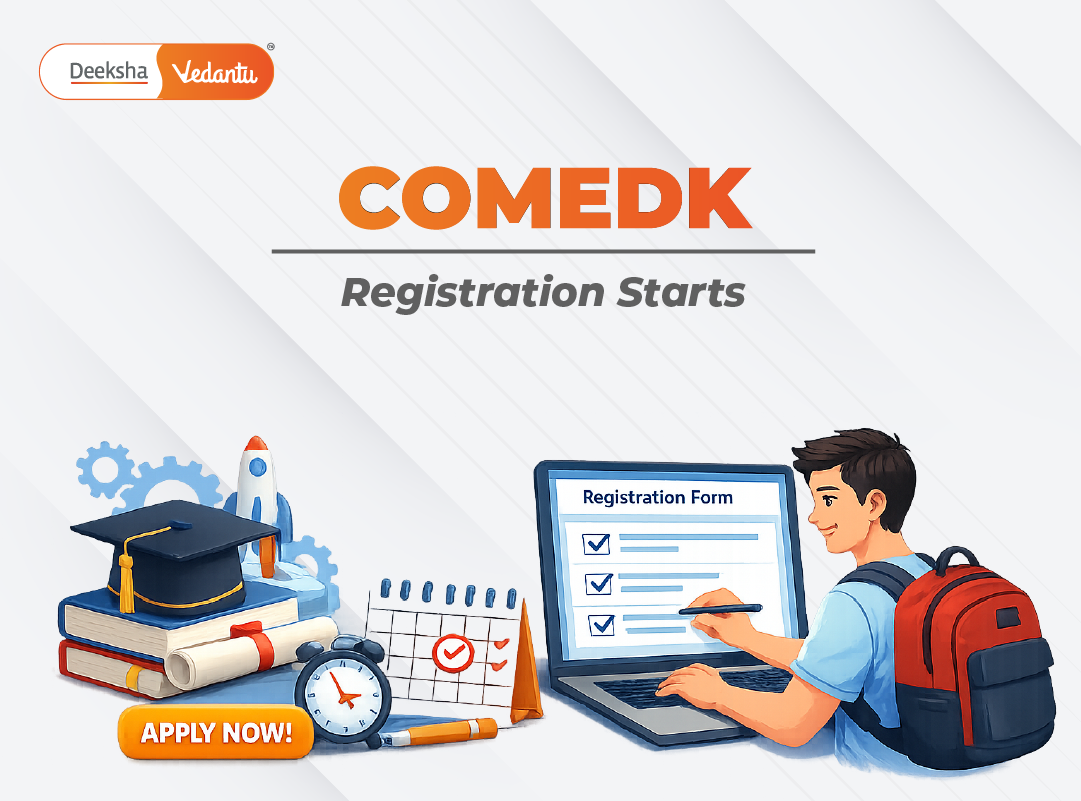
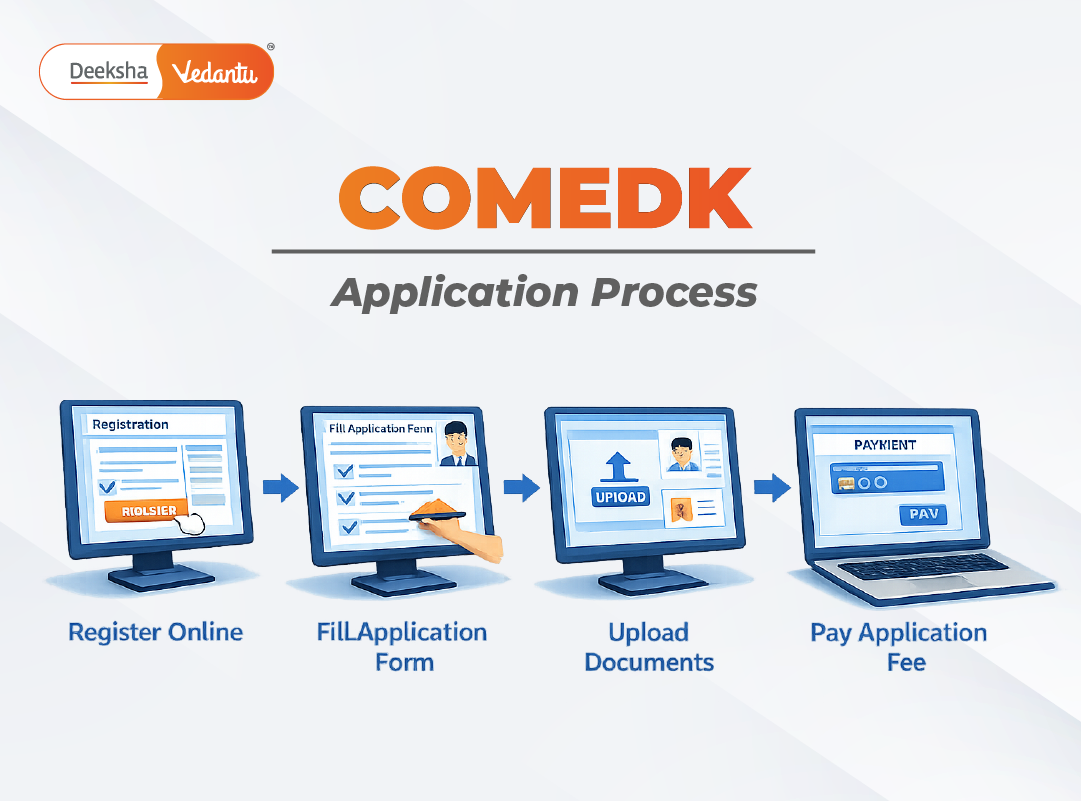
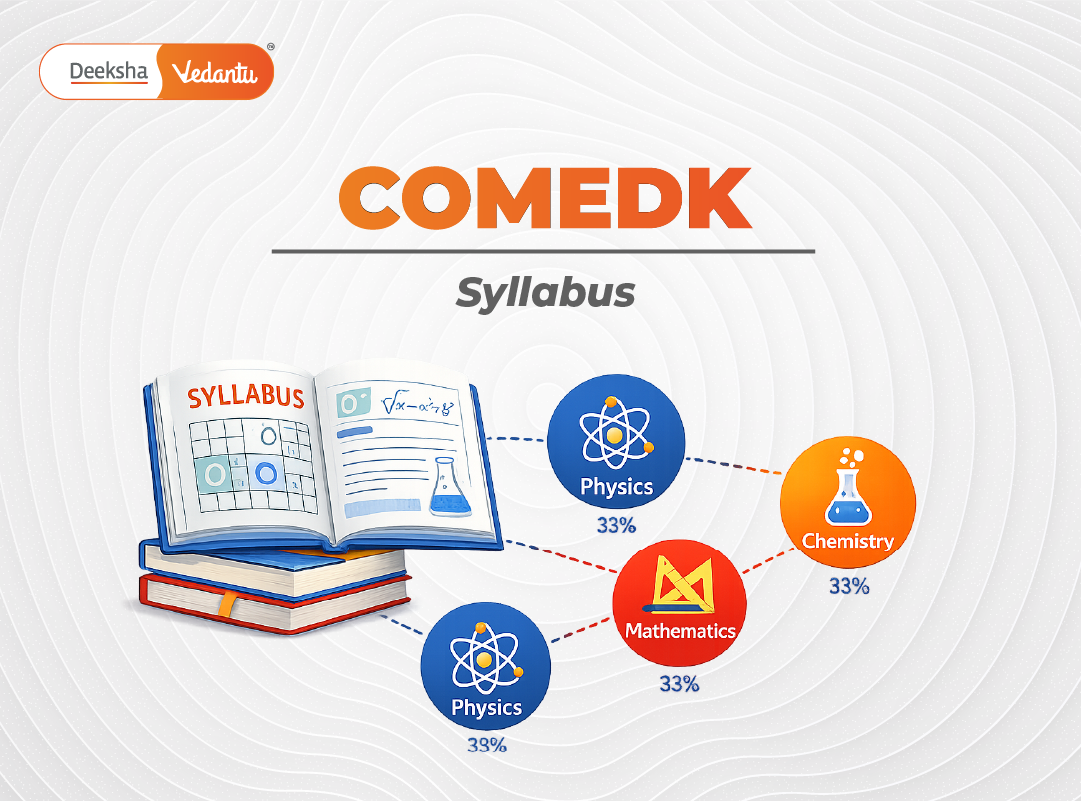
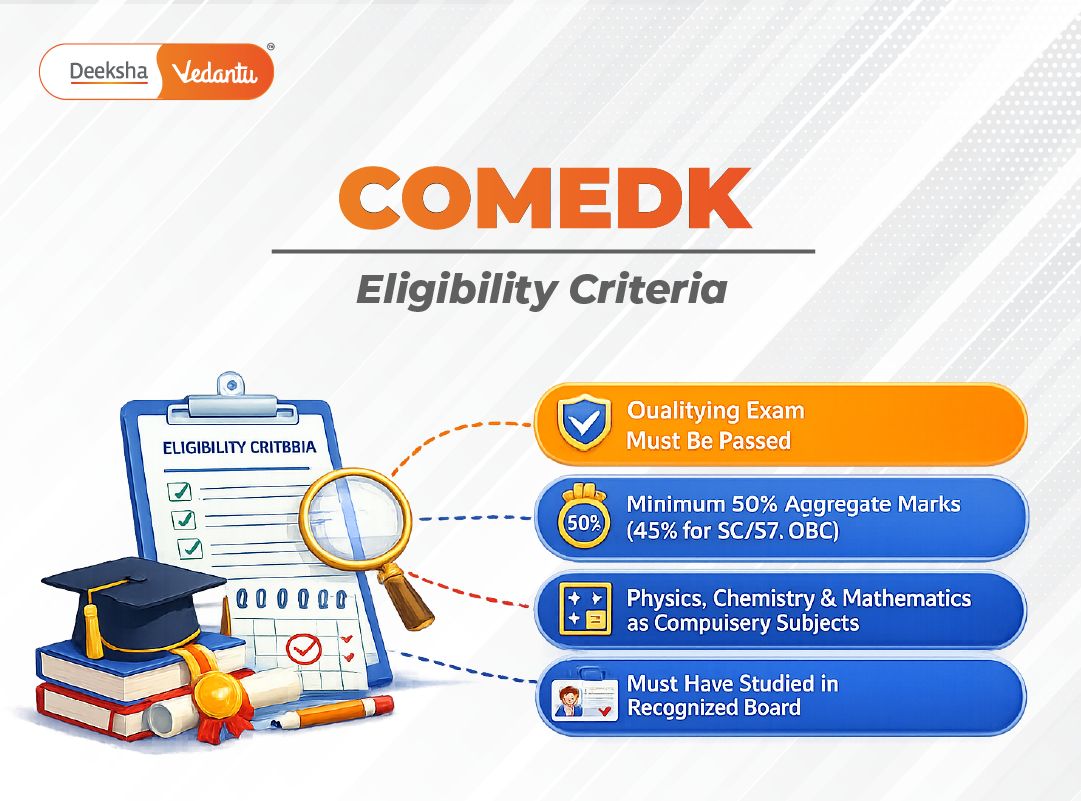
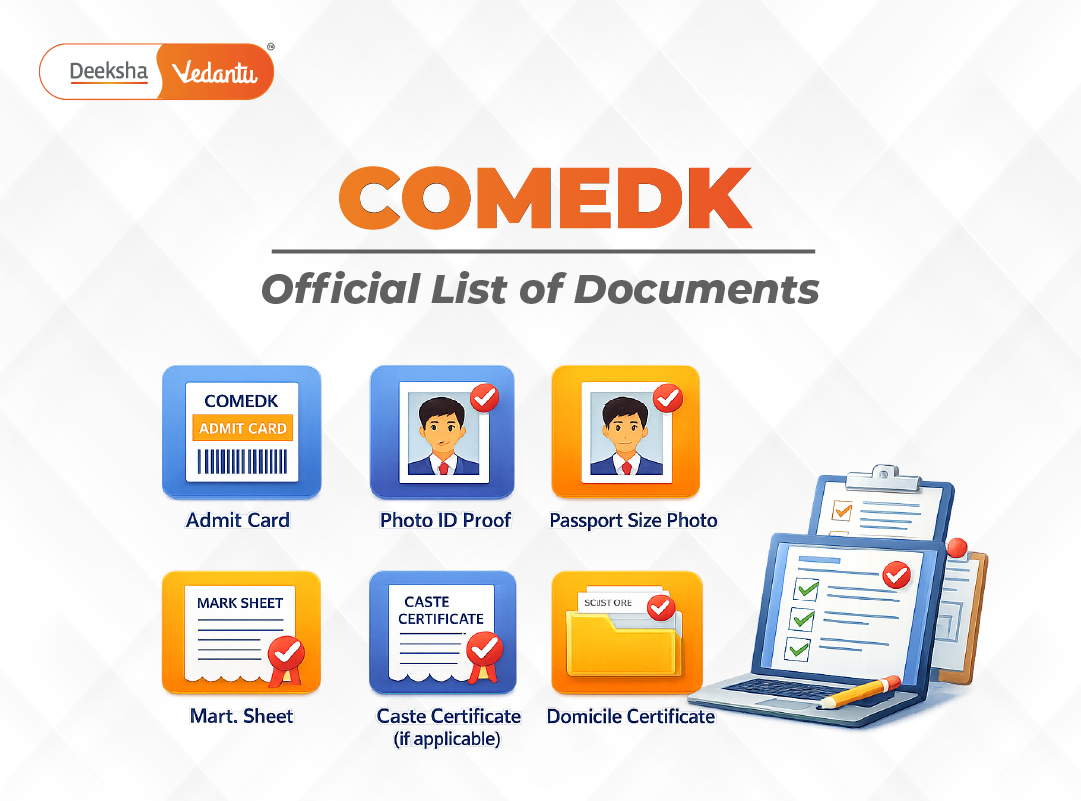
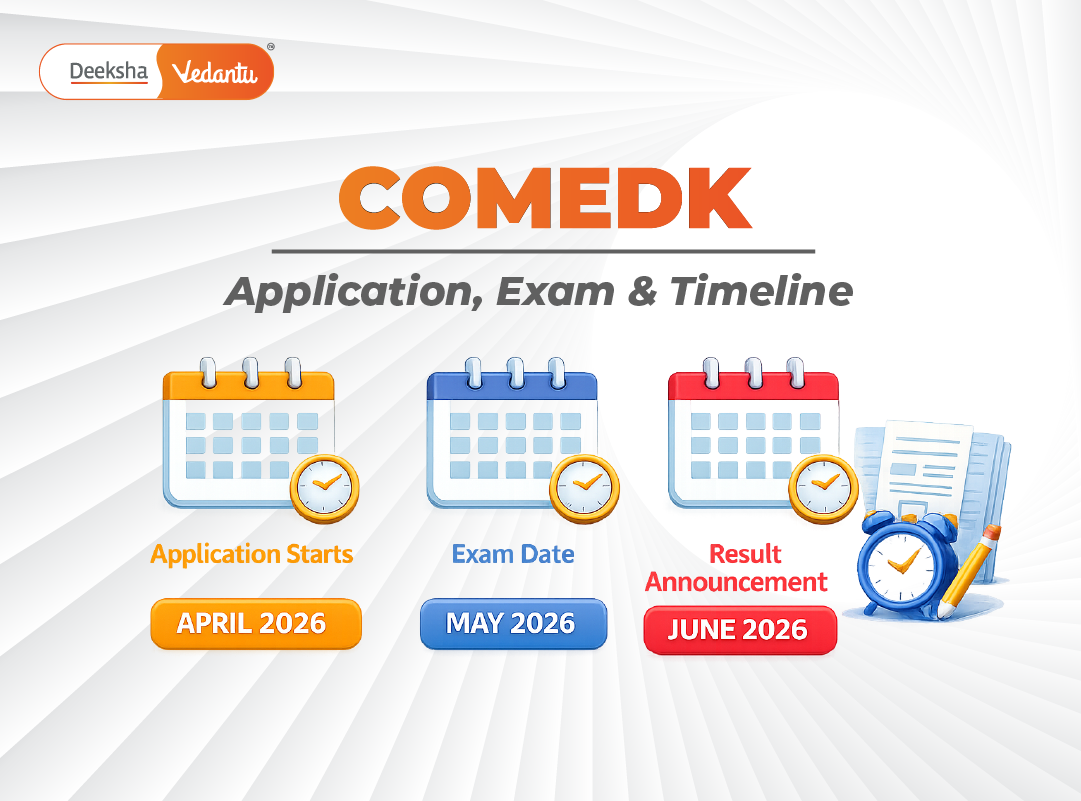
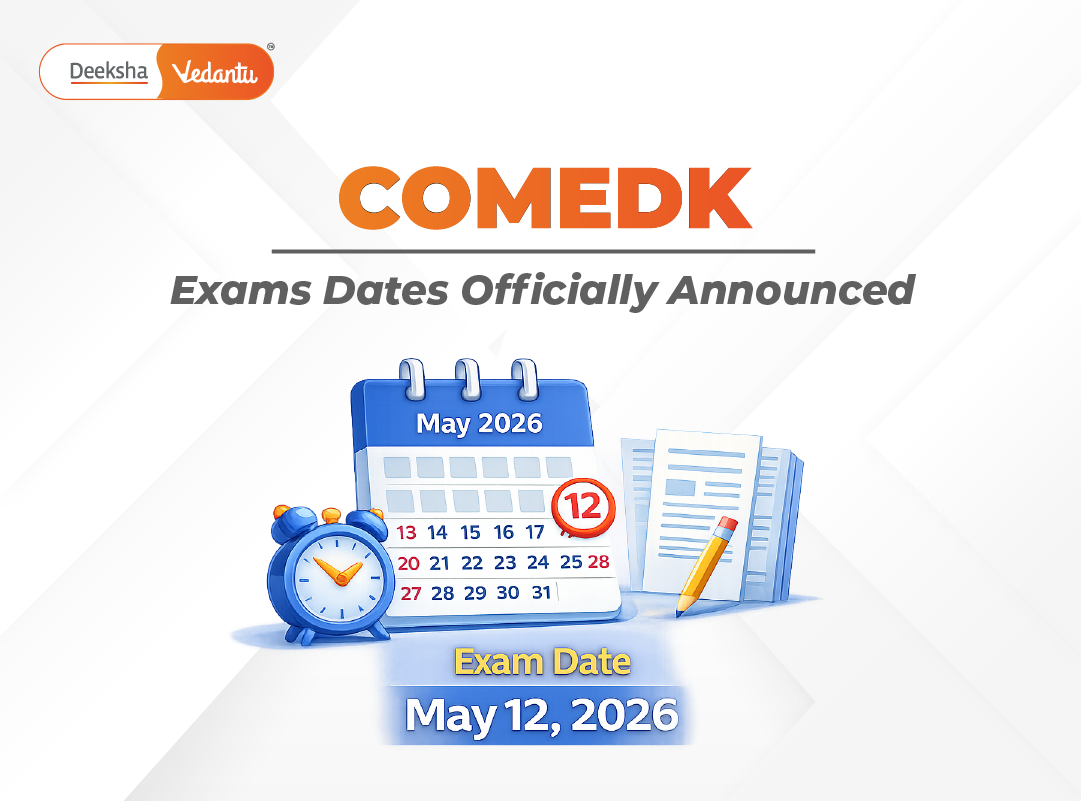
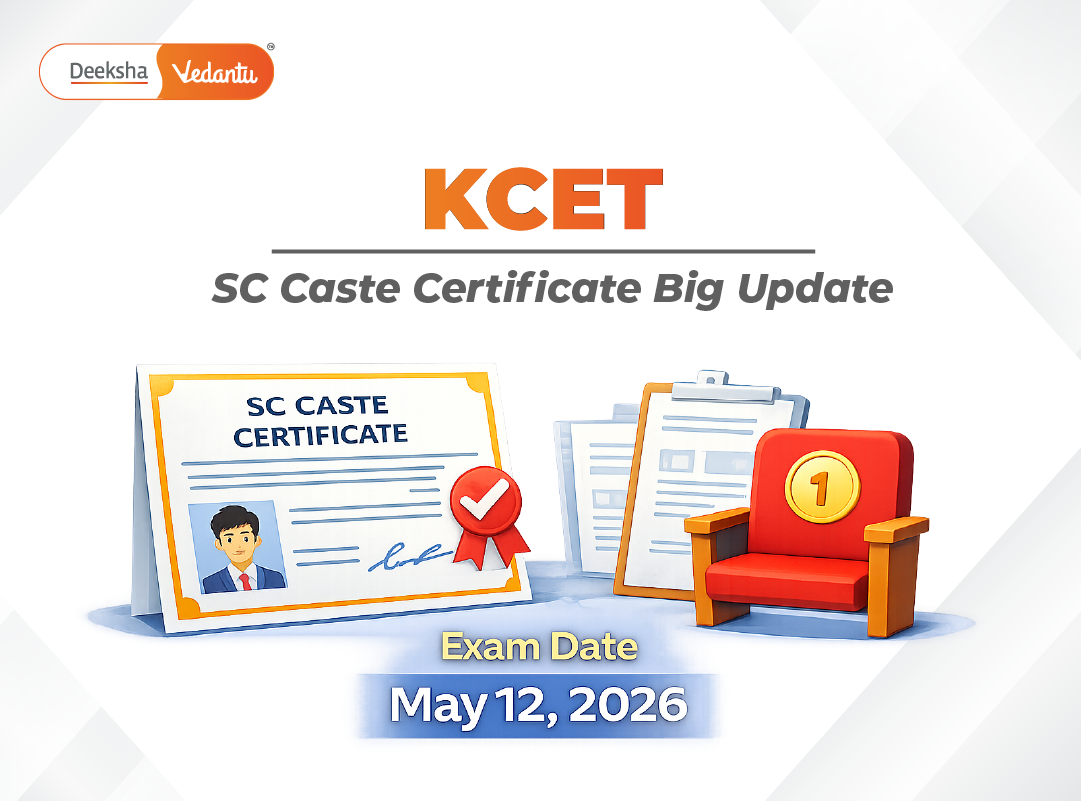


Get Social